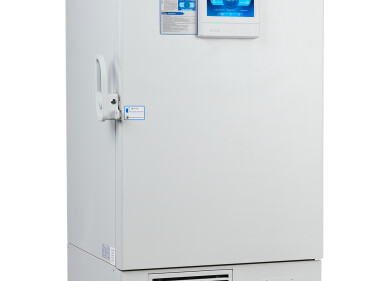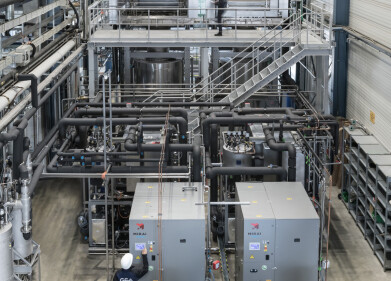Refrigerators / freezers
Cold chain storage – the link to wider public health
Mar 29 2016
In October 2013 Professor Steve Field, Chief Inspector of General Practice at the Care Quality Commission highlighted the problems caused by inadequate medicines management and the implications for public health. Professor Field was quoted by The Guardian as stating that patients who received vaccine that was out of date or stored badly could become ‘very, very poorly and then die’, and added ‘That could affect many hundreds of patients in single surgeries. If they've not tracked it for years, that's a major problem. You're talking about problems which can damage this generation and the next generation’.
Researchers at Emory University in Atlanta suggest that the recent outbreaks of measles and whooping cough in the USA could be the result of vaccine ‘refusers’. Not only do they get ill, they cause pockets of ‘disease susceptibility that caused others to fall ill’. This research supports Professor Field’s view but to work, a vaccine must be live when injected meaning correct temperature storage is of extreme importance.
All medicines have a manufacturers’ summary of product characteristics stating what temperature it must be kept to ensure efficacy. For most vaccines this is 2°C to 8°C so the Green Book Chapter 3 stipulate that such products must be kept in professional pharmacy refrigerators.
Such refrigerators are designed with fans to maintain their set point temperature and recover temperature quickly. They feature an external temperature display. This should show the air temperature because, if there is an issue changes in the air temperature will be the first indicator. Load temperatures are slower to react because they’re buffered to simulate the product. By the time the load alarm is activated the user has no time to try to sort the problem. The load probe is sometimes located in a bottle that may or may not be the size of the vaccine, often placed on the side of the fridge. Most of the contents are actually located in the middle of the fridge where they are insulated by product and will be warmer than this bottle. This is why the MHRA advises that load temperature probes in wholesale pharmacies are with the product in the centre of the fridge. Furthermore, the MHRA, in response to a question on its blog discussing wholesale pharmacy regulations, states ‘any use of a liquid to simulate the load of the refrigerator rather than monitor air temperature should be supported by a risk assessment’. Wholesale pharmacies have to record the load temperature, but you want to display and for the fridge to alarm on the air temperature.
High and low temperature alarms are usually standard. Most also have a door open alarm and the Labcold IntelliCold© range comes with alarm battery back up, alarming in the event of mains failure. They record minimum and maximum temperature and store these values until reset. In both healthcare and wholesale this has to be recorded on a daily basis, however, the Labcold IntelliCold© range stores all temperature data automatically which can be transferred to a PC for permanent storage. In Scotland temperature logs have to be stored for a number of years and many trusts want them kept for months minimum, so not only is this an objective recording it’s convenient to store plus easy to locate.
All pharmacy refrigerators should be calibrated. There is no point in having a temperature display if it isn’t showing the real temperature. It makes sense to have calibrated performed by a UKAS calibration lab so you can be sure everything is traceable. Pharmaceuticals are expensive and failure in documentation costly.
Amazingly, there is no standard for professional pharmacy refrigerators, the advice is just that domestic refrigerators should not be used. However, pharmacy fridges are an important part of the cold chain. Choosing the right one and ensuring it is monitored and calibrated to UKAS standards will protect the viability of the contents. As Professor Field argued in primary care, any prolonged temperature incursion anywhere along the cold chain could have profound health implications, possibly for generations to come.
Digital Edition
Lab Asia 31.6 Dec 2024
December 2024
Chromatography Articles - Sustainable chromatography: Embracing software for greener methods Mass Spectrometry & Spectroscopy Articles - Solving industry challenges for phosphorus containi...
View all digital editions
Events
Jan 22 2025 Tokyo, Japan
Jan 22 2025 Birmingham, UK
Jan 25 2025 San Diego, CA, USA
Jan 27 2025 Dubai, UAE
Jan 29 2025 Tokyo, Japan

.jpg)

















